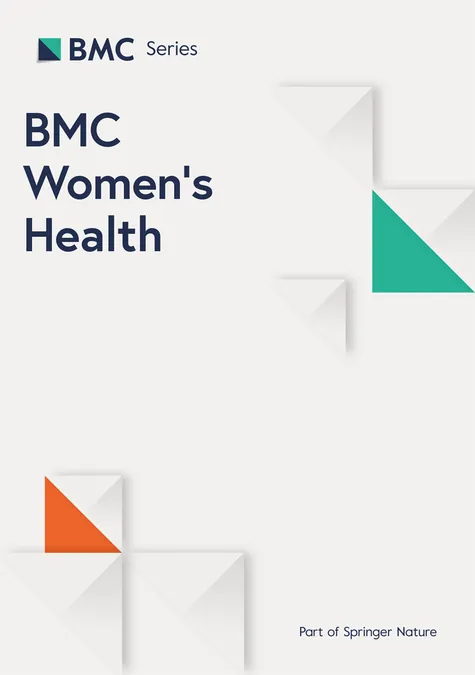
Unraveling Postmenopausal Depression: The Role of Cytokines and Menopause Hormone Therapy
2025-01-15
Author: Wei
Introduction
Postmenopausal depression is a growing health concern, particularly as the global population of postmenopausal women is expected to reach 1.2 billion by 2030. With women experiencing depression at double the rate of men, and facing an even greater risk during the menopausal transition, understanding the underlying mechanisms is crucial. This article explores the intriguing relationship between serum cytokine levels and depression in postmenopausal women, particularly focusing on those undergoing menopause hormone therapy (MHT).
The Connection Between Inflammation and Depression
Research indicates that inflammation plays a significant role in the development of depression. Pro-inflammatory cytokines such as IL-1β, IL-6, IL-18, and TNF-α have been linked to depressive symptoms in various populations. However, the specific associations in postmenopausal women remain under-explored. A recent study examined the cytokine levels and depressive symptoms in a cohort of 136 Chinese women aged 40 to 65 years, who were divided into two groups: those receiving MHT for at least 6 months and those who were not.
Key Findings from the Study
The results were eye-opening. Approximately 39.36% of women not receiving MHT exhibited symptoms of depression compared to just 14.29% of those receiving it. The study found that the POST + MHT group maintained significantly lower serum concentrations of IL-18 and TNF-α in comparison to their counterparts. Moreover, multiple linear regression analysis revealed that higher IL-18 and TNF-α levels were significant predictors of depression in women who did not receive MHT.
The Importance of Menopause Hormone Therapy (MHT)
This study adds to a growing body of evidence suggesting that MHT may alleviate depressive symptoms by modulating inflammatory pathways. Women in the POST + MHT group had a lower HAMD (Hamilton Rating Scale for Depression) score, indicating less severe depression levels compared to those who were not receiving MHT. This suggests that hormone therapy could be an important intervention in managing depression in postmenopausal women.
Cytokines and Depression: A Complex Relationship
Despite the findings, some cytokines, such as IL-1β and IL-6, did not show a significant correlation with depression levels in this study. This could be attributed to the fact that many participants exhibited cytokine levels below the detection limit. Previous studies have shown varying results regarding the influence of these cytokines on depressive symptoms, underscoring the need for further research to clarify these associations.
Implications for Mental Health Treatment
The implications of this research are profound. Not only does it highlight the need for early screening for depressive symptoms in postmenopausal women, but it also emphasizes the potential of MHT as a viable treatment option. By addressing both hormonal imbalances and inflammatory processes, healthcare providers might alleviate the psychological burdens experienced by these women.
Conclusion
As the understanding of postmenopausal depression continues to evolve, it becomes increasingly clear that a multifaceted approach is necessary. Hormone therapy might not just address the hormonal flux experienced during menopause but could also play a protective role against the inflammatory mechanisms contributing to depression. Future research should aim to explore this relationship further, utilizing larger sample sizes and longitudinal studies to peel back the layers of this complex condition. In summary, as society faces a rising number of postmenopausal women, insights into the interplay between hormones, cytokines, and mental health could pave the way for effective treatment strategies and improved quality of life for countless individuals. Don't miss out on understanding the full implications of this research—subscribe for more updates on women's health!


 Brasil (PT)
Brasil (PT)
 Canada (EN)
Canada (EN)
 Chile (ES)
Chile (ES)
 Česko (CS)
Česko (CS)
 대한민국 (KO)
대한민국 (KO)
 España (ES)
España (ES)
 France (FR)
France (FR)
 Hong Kong (EN)
Hong Kong (EN)
 Italia (IT)
Italia (IT)
 日本 (JA)
日本 (JA)
 Magyarország (HU)
Magyarország (HU)
 Norge (NO)
Norge (NO)
 Polska (PL)
Polska (PL)
 Schweiz (DE)
Schweiz (DE)
 Singapore (EN)
Singapore (EN)
 Sverige (SV)
Sverige (SV)
 Suomi (FI)
Suomi (FI)
 Türkiye (TR)
Türkiye (TR)
 الإمارات العربية المتحدة (AR)
الإمارات العربية المتحدة (AR)